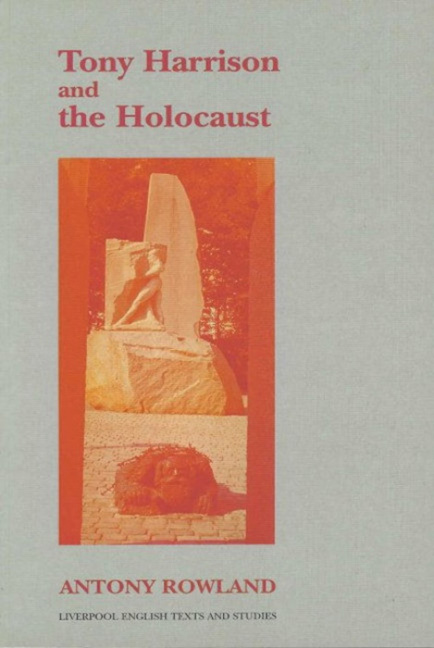Book contents
- Frontmatter
- Dedication
- Contents
- Acknowledgements
- Introduction
- 1 Cinema, Masturbation and Peter Pan: A Non-Victim Approach to the Holocaust
- 2 Amorous Discourse and ‘Bolts of Annihilation’ in the American Poems
- 3 Mourning and Annihilation in the Family Sonnets
- 4 The Fragility of Memory
- 5 Culture/Barbarism Dialectics in Harrison's Poetry
- Bibliography
- Index
Introduction
- Frontmatter
- Dedication
- Contents
- Acknowledgements
- Introduction
- 1 Cinema, Masturbation and Peter Pan: A Non-Victim Approach to the Holocaust
- 2 Amorous Discourse and ‘Bolts of Annihilation’ in the American Poems
- 3 Mourning and Annihilation in the Family Sonnets
- 4 The Fragility of Memory
- 5 Culture/Barbarism Dialectics in Harrison's Poetry
- Bibliography
- Index
Summary
Tony Harrison's poetry is barbaric. In ‘Them & [uz]’, the schoolteacher refers to the young poet as a barbarian because of his working-class accent; this is not the particular sense of the word that I wish to evoke. Instead, I refer to Theodor Adorno's statement that ‘to write poetry after Auschwitz is barbaric’: the philosopher's statement seems to suggest that such activity in the late twentieth century is unethical due to the sheer horror of the Holocaust; aesthetics and atrocity are incompatible. In this introduction, I challenge this standard interpretation of Adorno's polemic. For now, it needs to be noted that, even if the proclamation might form a starting point from which to unpack the poems, Harrison's reaction to the Holocaust differs from that of the philosopher. Whereas Adorno embraces scepticism, Harrison's poetry is barbaric in that it is the product of an agonised humanist who struggles to celebrate moments of positivity in a world which, in his own words, ‘has had its affirmative spirit burnt out’.
An adequate representation of the Holocaust remains a lacuna in post-war British culture, but this has not deterred a number of poets, including Sylvia Plath, Geoffrey Hill, Jon Silkin and Harrison himself, from engaging with it. To ignore the Holocaust would be to leave it shrouded, as the Nazis intended, in silence. Section II of this introduction surveys this dilemma between the impossibility of representing, and the necessity to write about, the Final Solution across a range of post-war texts. A mimetic relationship between art and the real is not predicated, since the inscription of an event is itself an act of interpretation. Hence this book highlights Harrison's mediated version of the Holocaust. As opposed to an author such as Primo Levi, whose writing about the Holocaust is partly a response to his internment in Auschwitz, Harrison's relationship to the event is that of a post-Holocaust writer affected by his reception of it via newsreel and literature. This does not mean that his work is antithetical to that of Levi: both are concerned with issues such as class, humanism, poetry, and the classics.
- Type
- Chapter
- Information
- Tony Harrison and the Holocaust , pp. 1 - 32Publisher: Liverpool University PressPrint publication year: 2001



